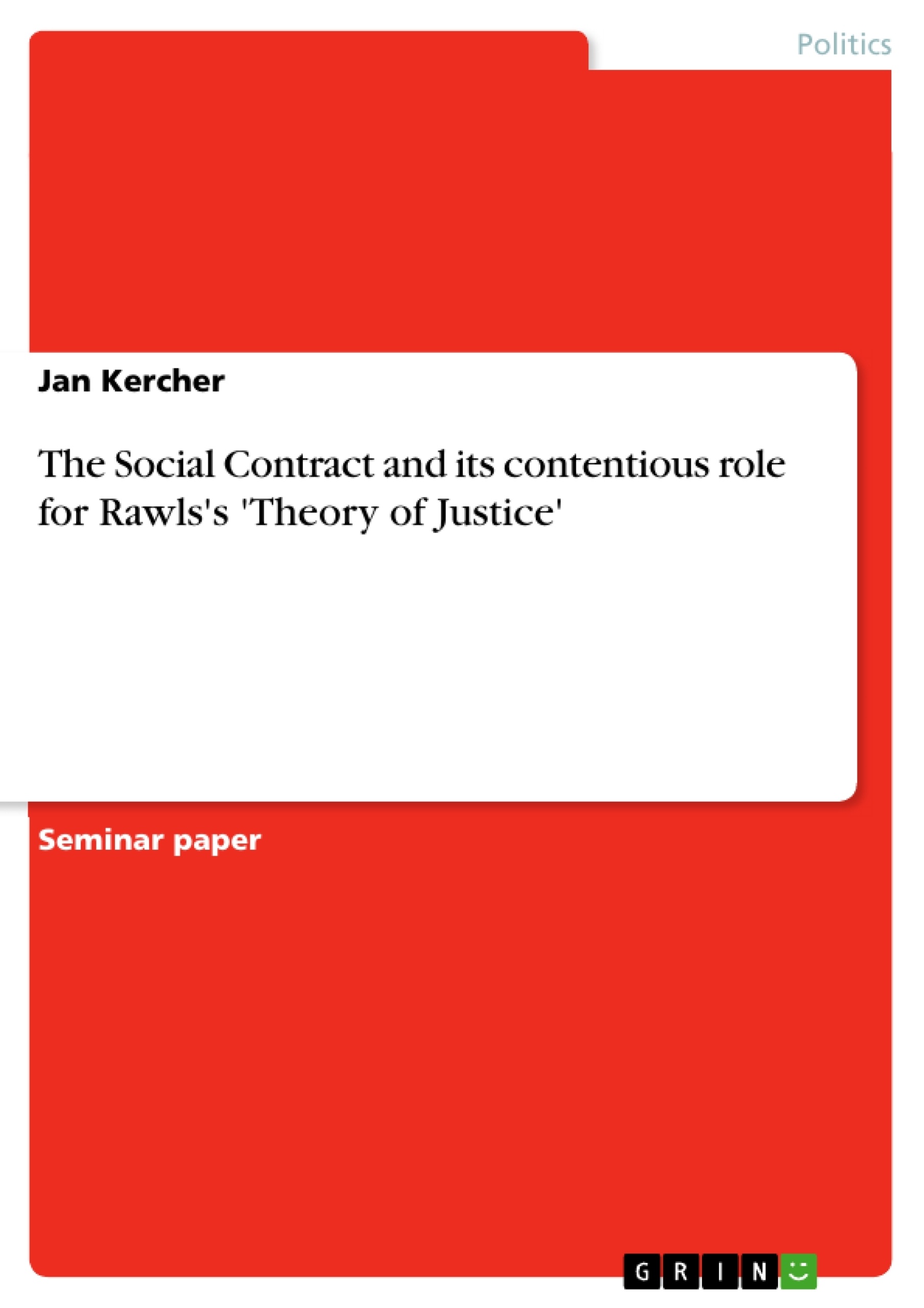In “A Theory of Justice” (Rawls, 1971), John Rawls tries to develop a conception of justice that is based on a social contract. His approach, doubtlessly, led to a revival of the contract theory in modern political theory. However, his peculiar conception of a hypothetical contract has also evoked a wave of severe criticism. Some of his critics settle for condemning special features of Rawls’s contractual concept, while others maintain that Rawls’s theory is, in effect, no real contract theory. In this paper, I will therefore focus on two research questions: Is Rawls’s theory a genuine contract theory at all? If yes, does the contract play a crucial role in this theory or is there a preferable alternative available to Rawls?
Table of Contents
- Introduction
- The Rawlsian Social Contract
- Rawls's theory - Not a genuinely contract theory at all?
- The role of Rawls's contract – crucial or dispensable?
- Conclusion
Objectives and Key Themes
This paper examines John Rawls's "Theory of Justice" and the role of the social contract within it. It explores whether Rawls's approach truly constitutes a contract theory and analyzes the cruciality of the contract in the framework.
- The nature and justification of Rawls's social contract
- Criticisms of Rawls's contract theory
- Defenses of Rawls's contract theory
- The role of the "veil of ignorance" in Rawls's theory
- The principles of justice derived from Rawls's contract
Chapter Summaries
- Introduction: This chapter introduces the paper's focus on the contentious role of the social contract in Rawls's "Theory of Justice," highlighting the contrasting perspectives of critics who argue against its validity as a true contract theory.
- The Rawlsian Social Contract: This chapter provides a brief overview of Rawls's conception of the social contract, emphasizing its hypothetical nature and the "veil of ignorance" employed to ensure fairness in the original agreement. It outlines how the principles of justice are derived through this contractual process.
- Rawls's theory - Not a genuinely contract theory at all?: This chapter delves into the criticisms leveled against Rawls's theory, arguing that its purely hypothetical nature and the lack of a traditional state of nature render it deficient as a genuine contract theory. The chapter explores the objections raised by Ronald Dworkin and others, highlighting concerns about the lack of binding agreement and the problematic exchange element in Rawls's framework.
Keywords
The paper explores key concepts and themes related to John Rawls's "Theory of Justice," including social contract, hypothetical contract, veil of ignorance, original position, principles of justice, fairness, criticism, and defense. These terms represent the core focus of the analysis and provide insight into the complex interplay between Rawls's theory and the concept of a social contract.
Frequently Asked Questions
What is John Rawls's "Theory of Justice"?
It is a work of political philosophy that argues for a society based on fairness, using a hypothetical social contract to derive principles of justice.
What is the "veil of ignorance"?
The veil of ignorance is a thought experiment where individuals choosing principles of justice have no knowledge of their own social status, talents, or personal characteristics to ensure impartiality.
Is Rawls's theory a real contract theory?
This is a point of debate. Critics like Ronald Dworkin argue that because the contract is purely hypothetical, it lacks the binding force of a traditional social contract.
What are the main principles derived from Rawls's contract?
The two main principles are: 1. Equal basic liberties for all. 2. Social and economic inequalities must benefit the least advantaged (the difference principle).
What is the "original position"?
The original position is the hypothetical starting point in Rawls's theory where rational parties choose the principles of justice behind the veil of ignorance.
- Citar trabajo
- Jan Kercher (Autor), 2004, The Social Contract and its contentious role for Rawls's 'Theory of Justice', Múnich, GRIN Verlag, https://www.grin.com/document/23155



